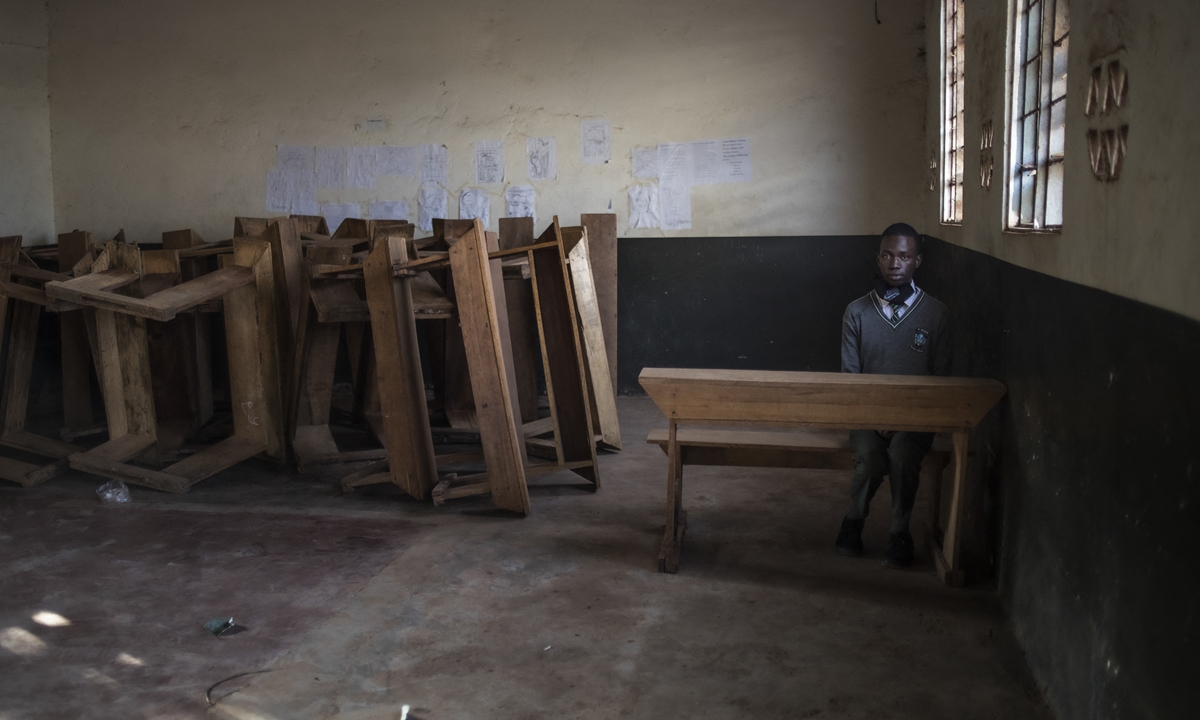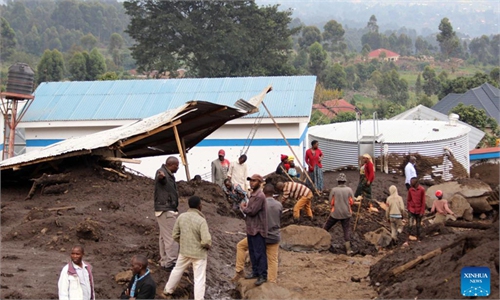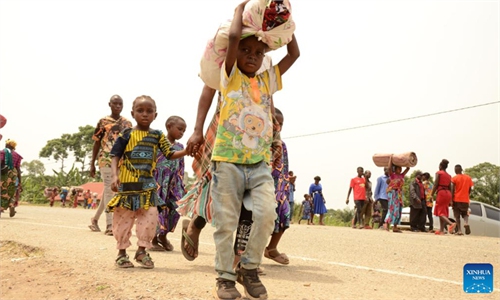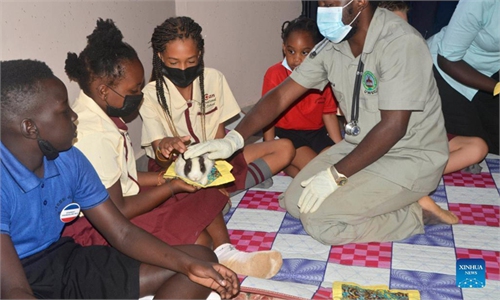Education becomes separator of society
Ugandan children drop out of school as fees soar post-COVID-19

A student sits alone in a classroom after reporting back to school on day one of reopening following an almost two-year closure of learning institutions as part of government measures to curb COVID-19 in Kampala, Uganda on January 10, 2022. Photo: AFP
Like many children in Uganda, Bridget Nabawanuka was excited about seeing her friends again after the world's longest pandemic-induced school closure, but a steep hike in fees meant she never made it back to the classroom.The 7-year old, who now works at her mother's food stall in the capital, Kampala, is among a rising number of children who are dropping out because cash-strapped parents are unable to pay soaring bills from state and private schools.
"She asks me every morning when she will go back to school," said Bridget's mother, Agnes Nangabi, who hopes to save enough to send her daughter to a different state school with lower fees.
Primary and secondary school education is meant to be free in the East African nation, but most government schools say they do not receive enough state funding to cover running costs, in turn charging for everything from exam fees to toilet paper.
Many headteachers have ignored an Education Ministry plea not to hike fees above pre-pandemic levels, said two human rights lawyers who have filed suit against the government to demand it regulate fees - something it promised to do in 2018.
"Very many children have and are dropping out, both as a result of the decimation of incomes ... and as a knock-on effect of the fee hikes," said one of the lawyers, Andrew Karamagi, describing the situation as an "unregulated privatization."
Asked to comment on the lawsuit, which is due back in court on April 25, the Education Ministry said it was finalizing regulations about the charging of fees that would include penalties for schools flouting the rules.
The ministry does not oppose schools charging fees but they must make a formal application to increase them, said spokesperson Mugimba Dennis.
Government schools typically charge about 200,000 Ugandan shillings ($56) per term, while private school fees can range from 500,000 to 1 million Ugandan shillings.
Nangabi, who has two other children and is the family's sole breadwinner, earns 15,000 to 30,000 shillings a day, and could not afford the 170,000 shilling fee for Bridget's school - up 20 percent since before the pandemic.
Karamagi said the "extortionist" school fees would have an unequal impact on the poorest families.
"Education, which should be an equalizer, has become a separator [or] stratifier of society," he said.
Learning suspension
The legal action comes amid wider concerns about the long-term impact of lengthy pandemic school closures, with UN children's agency UNICEF warning of a "lost generation" unless governments take urgent steps to get students back on track.
Economists have also raised fears that the education crisis could leave countries like Uganda without the skilled workforce they need for their future development.
UNICEF said about one in 10 children in Uganda did not report back to school in January, while the National Planning Authority (NPA), a government agency, estimated in 2021 that up to 30 percent of children could drop out due to COVID-19 fallout.
Factors include rising poverty, children taking jobs, early marriages and teenage pregnancies, which have soared during classroom closures.
Increased fees have been a further deterrent for low-income families to send their children back to school, according to the Initiative for Social and Economic Rights (ISER), a civil society organization and co-plaintiff in the legal action.
At Kyambogo College School, a government-aided school in central Uganda, headteacher Hellen Twongyeirwe said the increase in fees at many schools was linked to the rising cost of living.
Private schools - which outnumber government schools and are favored by many parents - have raised their fees too, and heads have also blamed inflation for pushing up overheads.
Poor students give up hope
In Kampala, Bridget now spends her days helping her mother sell food at her street stand.
"When the kids in the neighborhood return from school, she's inquisitive about the new things they've learnt," her mother said.
Rinsing plates at the kiosk, Bridget said she loved science and wanted to be a doctor, adding that she was working hard to help her mother save up so she could return to school.
Other students have already given up hope of going back.
Adella Asiimwe, 15, dropped out in February after her school in Isingiro in western Uganda raised its term fees by 20 percent to 350,000 shillings. Her parents decided to prioritize the primary education of her younger siblings.
"I looked at my friends returning to class and felt envious," said Adella, who had hoped to become a journalist but now sells TV decoders on the streets of Kampala. "I wished my parents could afford school, but I knew they had nothing left."
Reuters



